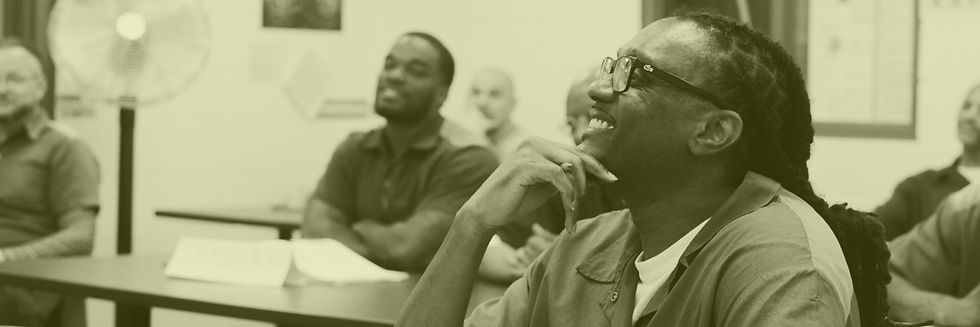



Restoring dignity, personal agency, and economic opportunity through higher education
Why we're here
The Michigan Consortium for Higher Education in Prison (MiCHEP) advocates for the power of higher education to improve the lives of incarcerated students and their communities, thereby benefiting corrections staff and Michigan taxpayers. MiCHEP believes that college-in-prison can restore personal agency, dignity, and economic opportunity for incarcerated students. A college education can help ensure successful reentry into society as informed and capable citizens committed to the common good.
Identify
Identify best practices for delivering the highest quality education with the goal of bringing a "main campus" college experience to the prison campus.
Share
Share information about college-in-prison between member institutions, the Michigan Department of Corrections (MDOC), other partners, and the public
Encourage
Encourage member colleges to provide a range of educational offerings consistent with student interests and workforce needs
Advocate
Advise
Collaborate
Advocate for policies that support the flourishing of incarcerated college students and graduates
Advise the MDOC on ways to best integrate higher education strategies into its Offender Success framework
Collaborate on data sharing and other strategies to encourage more integrated approaches to higher education in prison

"This program has not only changed my life, but also the lives of my family. It has given me vision, drive, and passion to change the culture and conditions here in prison, while helping me motivate my kids to further their education."
MiCHEP Student
1,300
incarcerated college students
14
Michigan colleges offering degrees
730
completed
associate degrees
3,000
prospective students on waiting lists
17
partner
correctional facilities
150
completed
bachelor's degrees
2023-2025 Annual report

Our inaugural annual report proudly showcases the mission, vision, and significant accomplishments of MiCHEP to date. It not only reflects on our journey so far, it also acts as a strategic roadmap for future achievements. Your engagement and support are vital as we continue to strive for excellence and make a positive impact in communities across Michigan. We invite you to delve deeper into our initiatives and successes by reading the full annual report below.


